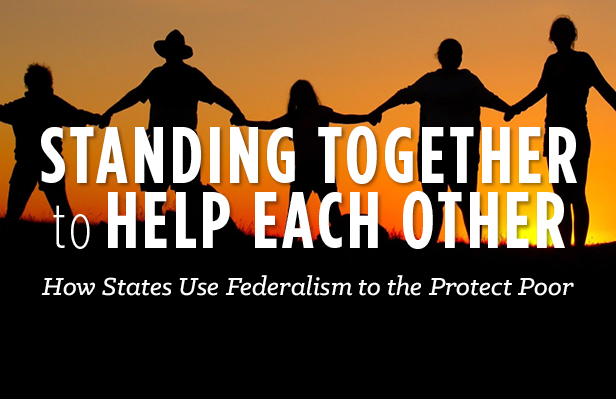Media

Washington isn’t Interested in Fixing Medicaid
“We have been legitimately working very hard with them and frankly, I’m very disappointed with the turn in discussions in the last week,” said Governor Corbett (paywall) on the federal government’s unwillingness to negotiate a Medicaid expansion compromise.
Pennsylvania’s Medicaid expansion waiver (also known as Healthy PA) asks permission to implement a number of state-based Medicaid reforms, including premium sharing and work search requirements. Pennsylvania desperately needs Medicaid flexibility to preserve the safety net for the truly needy and help lift people out of poverty.
The history of welfare reform shows employment provides the path from poverty to prosperity. Work should be rewarded and encouraged in every social safety net program.
If the federal Department of Health and Human Services really wanted to help people, they would welcome this reform. Instead they are simply vying for more control, but it’s top-down government control that has turned Medicaid into the worst form of health insurance in the country.
Taxpayers spend billions on a program that was found to have no discernible physical health impacts. In fact, the largest benefit patients in the Oregon Medicaid experiment received was piece of mind, or relief from the fear of medical bankruptcy. We can provide that relief and much more at a lower cost.
As Louisiana Gov. Bobby Jindal recently wrote:
We need solutions, but not Washington-centric bureaucracy disguised as “reform”—we’ve done that already, and it hasn’t worked.
By contrast, conservative governors throughout the country have implemented successful health reforms — from the Hoosier State’s Healthy Indiana Plan, to Rhode Island’s innovative Medicaid waiver, to the Bayou Health program we’ve created right here in Louisiana. These reforms have lowered costs — in some cases dramatically — improved the quality of care, and received widespread public support.
But in many states, including Louisiana, we would go further with our reforms, if only Washington bureaucrats would get out of the way. At the risk of echoing Churchill, that’s the better way forward on health care — give states the tools, and let them do the job.
In addition to connecting Medicaid with employment, Pennsylvania can work towards giving current Medicaid patients a broader choice of providers with choice counseling. States such as Florida, Kansas and Louisiana have empowered traditional Medicaid patients to choose the provider that best fits their needs. In Florida, for example, patients can choose from up to 11 different health plans. Between 70 percent and 80 percent of patients in Florida’s program actively choose their health plan.
If Washington isn’t willing to give Pennsylvania the flexibility it needs to better serve Medicaid patients, it might be time to walk away from the negotiating table and pursue other paths to real reform.